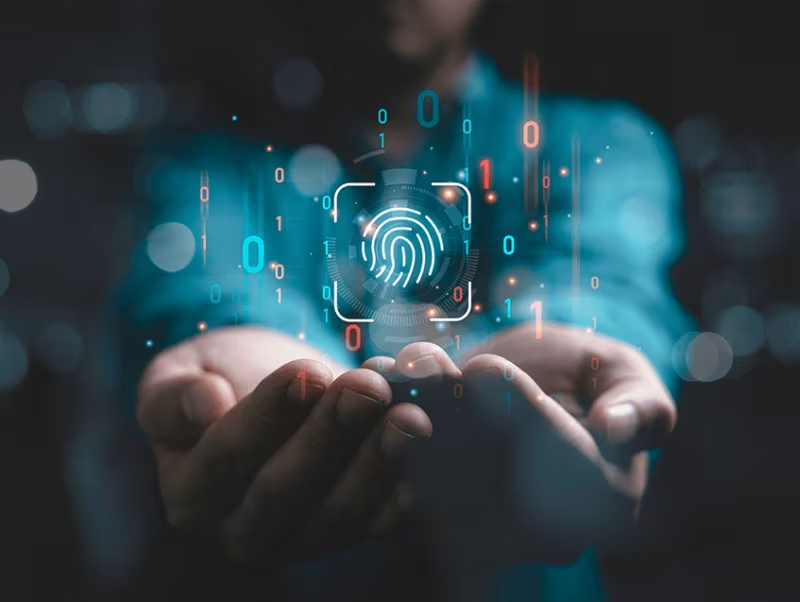Resource / Online Journal
How to Protect Personal Information Online
Protect personal information online by using strong passwords, enabling two-factor authentication, being cautious with personal data, and staying informed about cybersecurity threats.
Published on Jul 1, 2024

In today's digital age, safeguarding personal information has become more critical than ever. With cyber threats on the rise, it's essential to take proactive measures to protect personal information online. This article will provide detailed strategies to enhance online security and ensure that your personal data remains safe.
Understanding the Risks
Before diving into how to protect personal information online, it's crucial to understand the risks involved. Cybercriminals use various tactics to steal personal data, including phishing, malware, and identity theft. Knowing these risks helps in developing effective strategies to counter them.
Use Strong, Unique Passwords
One of the most effective ways to protect personal information online is by using strong, unique passwords for each account. Avoid using easily guessable passwords like "123456" or "password." Instead, create complex passwords that include a mix of letters, numbers, and special characters. Use a password manager to keep track of your passwords and ensure they are unique for every account.
Enable Two-Factor Authentication (2FA)
Two-factor authentication (2FA) adds an extra layer of security to your accounts. Even if a cybercriminal obtains your password, they will still need a second verification form, such as a code sent to your phone, to access your account. Enabling 2FA on all your accounts is a crucial step to protect personal information online.
Be Cautious with Personal Information
Be mindful of the information you share online. Avoid posting sensitive details like your full name, address, phone number, or financial information on social media platforms. Cybercriminals can use this information for identity theft or other malicious activities. Adjust your privacy settings on social media to control who can see your posts and personal information.
Use Secure Connections
Always use secure connections when accessing the internet. Avoid public Wi-Fi networks for any activity that involves personal information, such as online banking or shopping. If you must use public Wi-Fi, consider using a Virtual Private Network (VPN) to encrypt your internet connection and protect personal information online.
Keep the Software Updated
Regularly updating your software, including operating systems, browsers, and apps, is essential to protect personal information online. Software updates often include security patches that fix vulnerabilities that cybercriminals could exploit. Enable automatic updates to ensure you always have the latest security features.
Install and Maintain Antivirus Software
Antivirus software protects your devices from malware and other cyber threats. Ensure you have reputable antivirus software installed on all your devices and keep it updated. Regular scans can detect and remove malicious software, helping to protect personal information online.
Be Wary of Phishing Scams
Phishing scams are a common method used by cybercriminals to steal personal information. Be cautious of emails, messages, or websites that ask for your personal information. Verify the authenticity of the sender before clicking on any links or providing any details. If something seems suspicious, it's better to err on the side of caution to protect personal information online.
Secure Your Devices
Protecting your devices is essential to safeguard your personal information. Use strong passwords or biometric authentication (fingerprints or facial recognition) to lock your devices. Enable remote wiping features, so you can erase your data if your device is lost or stolen. Regularly back up your data to a secure location to prevent data loss.
Monitor Your Accounts Regularly
Regularly monitoring your accounts can help you detect any unauthorized activity early. Check your bank statements, credit reports, and online accounts for any suspicious transactions or changes. Early detection is crucial to mitigate the damage and protect personal information online.
Educate Yourself and Others
Staying informed about the latest cybersecurity threats and trends is vital. Educate yourself and others on best practices to protect personal information online. Awareness and knowledge are powerful tools in the fight against cybercrime.
Use Encryption
Encryption is a powerful tool to protect personal information online. It converts your data into a code to prevent unauthorized access. Use encrypted messaging apps and email services to communicate sensitive information securely. Ensure your devices and storage media are encrypted to protect your data.
Avoid Unnecessary Sharing
Limit the amount of personal information you share online. Review the permissions of the apps and services you use and disable any unnecessary data collection. Be cautious about the information you provide when signing up for new services and consider the potential risks before sharing.
Opt for Privacy-Focused Services
Choose services and platforms that prioritize user privacy. Many companies offer secure and private alternatives to popular services, such as email providers and search engines. Using these privacy-focused services can help you protect personal information online.
Conclusion
Protecting personal information online is a continuous effort that requires vigilance and proactive measures. By using strong passwords, enabling two-factor authentication, being cautious with personal information, and staying informed about cybersecurity threats, you can significantly enhance your online security. Implement these strategies to protect personal information online and safeguard your digital life from cyber threats. In today's interconnected world, taking these steps is not just advisable but essential for maintaining privacy and security.
Recommended articles


Enhancing Cybersecurity in Banking: The Vitality of Identity Access Management
Take Your Identity Strategy
to the Next Level
Strengthen your organization's digital identity for a secure and worry-free tomorrow. Kickstart the journey with a complimentary consultation to explore personalized solutions.